Whether for newborns or fictional characters, discover the most popular Scandinavian names for boys and girls. Updated with the latest naming trends from Denmark, Norway and Sweden.
Just like any region, Scandinavian names come in and out of fashion for various reasons. Norse mythology and the Viking Age still have a major influence on naming, but so do modern TV shows and movies.
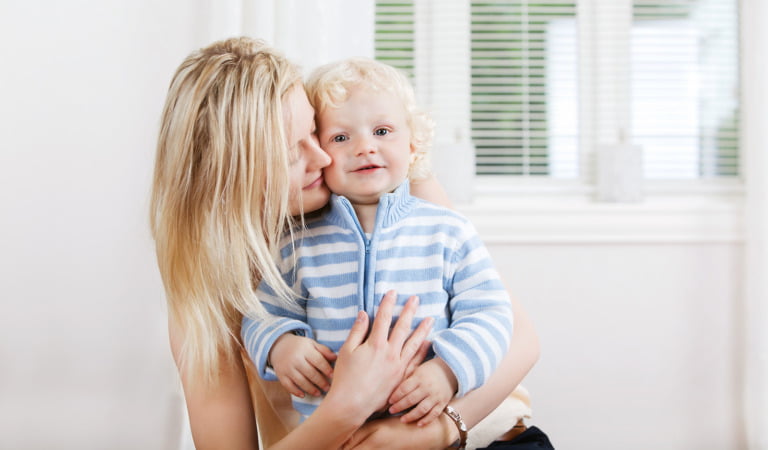
Are you curious about a name you've come across in a Norwegian TV show? Perhaps you've just met a charming Swede and you're interested in knowing more about their name? Or you're looking for a Danish-inspired name for a new arrival?
Whatever the reason you're investigating Nordic names, you've come to the right place. We'll take a look at the most common given names in the region of Scandinavia: Denmark, Norway and Sweden.
At the end, there's some bonus names thrown in from Finland and Iceland too! So if you're ready, let's get going…
Table of Contents
How do Scandinavians choose names?
Let's start with an important question! While patronymic given names are no longer used in Norway, it's still relatively common to name a child after one of his or her parents or grandparents.
Many names of both genders have backgrounds in Norse mythology and the Viking Age. Some, but not all, Viking names remain popular today for both men and women.
Despite this fondness for tradition, trends are important too. Last year, 416 newborn girls in Norway were named Nora. Although the name—a shortened form of Eleonore—was popularised in a Henrik Ibsen play, it has been revived thanks to the wildly popular TV show Skam.
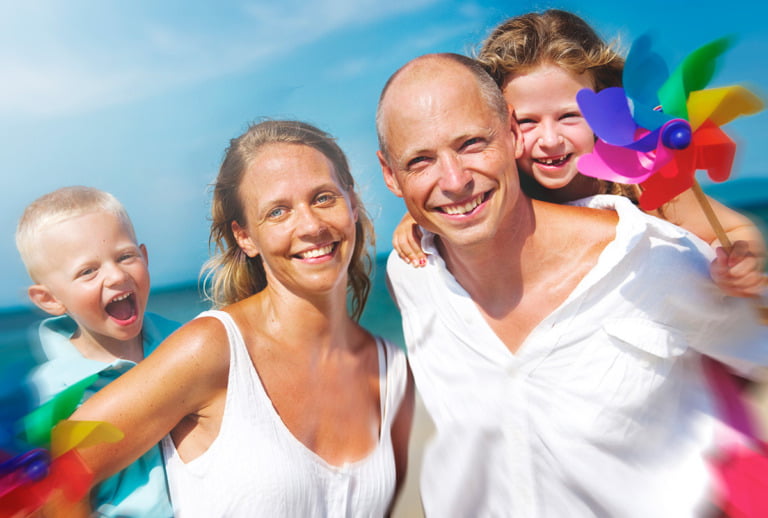
One more thing, be aware that some names are banned in Scandinavia! Each country has its own rules about what you can—or more specifically can't—name a child. Here's more about banned names in Norway.
Now let's take a look at some of the most common names in Scandinavia, both for adults and newborns.
Before you dive into the comments because your favourite name isn't included, please bear in mind this is not intended to be an exhaustive list! Scandinavian names are diverse, and this article is merely intended as an introduction to this wonderful world.
Popular boys' names in Scandinavia
You may have heard of many of these through TV and movies. But I'm sure there'll be some surprises on this list too. Some names are popular only in one country, while others are universal across the region.
Anders. The Scandinavian version of Andrew originates from the name Andreas, meaning “manly” or “brave.” In Denmark, the name Anders carries a playful note as it is associated with the beloved cartoon character Donald Duck.
The prevalence of the name in Sweden is reflected in the common surname Andersson, indicating “son of Anders,” a nod to the historical patronymic tradition that ended in the early 20th century.
Axel/Aksel. Believed to be of Hebrew origin, the name Axel is popular throughout Scandinavia and in Germany. Aksel, particularly in Norway and Denmark, carries a certain Nordic charm, often associated with strength and resilience.
In Sweden, Axel is a name that resonates with cultural pride, partly due to the international fame of musicians like Axwell (Axel Christofer Hedfors) of Swedish House Mafia, who has brought a modern celebrity sheen to this historic name.
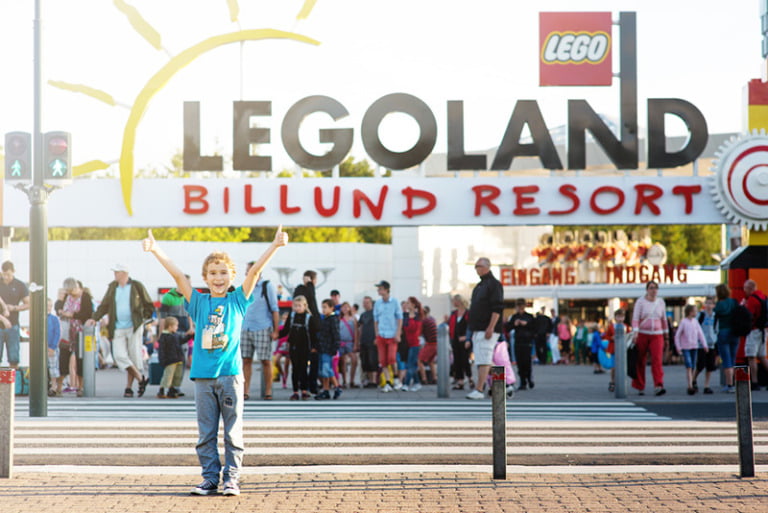
Bjørn. Meaning Bear in Norwegian, Bjørn is a very common name in Norway. For some, it no doubt conjures images of the wild, majestic landscapes of Scandinavia and the powerful creatures that roam them.
While its popularity for newborns may have waned slightly, the name still holds a place of honour in many families, passed down through generations. It's a name that carries with it a sense of ruggedness and a deep connection to the natural world.
Elias. A name with a Hebrew background, Elias was first recorded as a name in Denmark and Sweden in the 12th century.
It remains popular today especially in Sweden as a name that bridges old and new. The name has a timeless quality, appealing to parents who seek a name with both traditional roots and contemporary flair.
Henrik. The Scandinavian form of Henry means ‘home ruler' or ‘lord of the house'. It is a regal name, with a long history of use among Scandinavian and European nobility.
In Denmark and Norway, Henrik has a classic resonance, often associated with individuals who possess leadership qualities and a strong sense of responsibility.
Jacob/Jakob. Jakob has enjoyed a resurgence in recent years, especially in Norway. In 2020, it was the most popular Norwegian baby name for boys after several years in second place. In use in Norway since the 1300s, Jakob/Jacob was very popular in the early 1900s before falling out of use almost completely–until recently!
Jan. A variant of John that's common not just in Scandinavia but in Germany and the rest of Northern Europe too. Jan is quite commonly used in conjunction with another name to form a given name, for example Jan Petter. Although the name Jan is common in Scandinavia, it is not a popular name for newborns.
Jens. Jens, the Scandinavian derivative of Johannes, itself a form of the name John, carries with it a simplicity and strength that has made it a favourite. In Denmark, Jens is extremely common, although less so elsewhere in the region.
Its popularity also extends across the Danish border to Germany, where it is equally embraced for its conciseness. While Jens may not top the modern charts in all Scandinavian countries, its presence is felt in the countless individuals who bear the name.
Lucas/Lukas. Lucas, or Lukas as it is often spelled in the Nordic countries, is a name that has seen a surge in popularity, becoming one of the top choices for newborns.
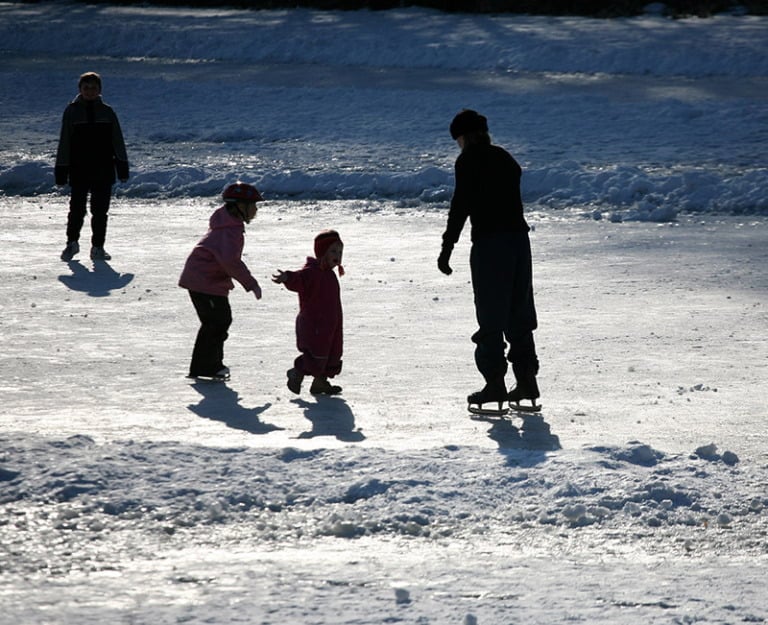
The name, of Latin origin, has a universal appeal that has resonates with parents in Norway, where it consistently ranks in the top ten names for newborn boys. Its appeal is mirrored in Germany and Austria, where the name is equally cherished.
The name's popularity can be attributed to its classic, yet modern feel, and its ability to cross cultural boundaries with ease due in part to the two spelling options.
Michael. Of Hebrew origin, Michael has found a home in Denmark and to a lesser extent in the wider Scandinavian region. The name has biblical roots, associated with the archangel Michael, which contributes to its enduring popularity.
In Denmark, the name has been popularized by figures such as Michael Laudrup, a footballer whose skill and charisma have left a lasting impression on the sport. The alternate spelling of Micael in Sweden offers a localized version that retains the name's traditional resonance.
Ole. Derived from the Old Norse name Óláfr, Ole is another name that's popular but not with newborns. Famous Norwegians with the name include football manager Ole Gunnar Solskjær and skier Ole Einar Bjørndalen. Note that both people have a two-part given name, which is common for people named Ole.
Peter/Petter. Known as Petter in its Nordic form, Peter is a name that has stood the test of time throughout Scandinavia. Derived from the Greek word “petros,” meaning “rock,” the name is synonymous with steadfastness and durability.
In the Nordic countries, Peter/Petter is a name that has been borne by a wide array of notable figures, from the realms of sports to business, including Norwegian rally driver Petter Solberg and entrepreneur Petter Stordalen.
Viktor/Victor. Viktor, with its alternative spelling Victor, is a name with Latin origins, meaning ‘conqueror' or ‘victor'. It's a name that has been embraced across Scandinavia, particularly in Sweden where it has been consistently popular.
The name suggests triumph and achievement, resonating with parents who might wish for their child to possess a strong, winning character. Perhaps that's the reason why Norwegian golfer Viktor Hovland has seen such success so early in his career?
That's just a few to get you started! To continue you research, check out this list of popular baby boy names in Norway.
Popular girls' names in Scandinavia
It's hard to be sure, but I believe there is more diversity among girls names between the three Scandinavian nations. Here are some of the most popular:
Alma. This name with a soft, poetic sound, has seen a remarkable surge in popularity in Denmark in recent years. Its origins are often debated, with some suggesting it derives from the Latin word for “nourishing” or “kind,” while others point to its meaning in Spanish as “soul.”
Whatever its origins, in Scandinavia, Alma is perceived as a name that embodies wisdom and nurturing care, a name that seems to capture the essence of a loving, maternal figure.
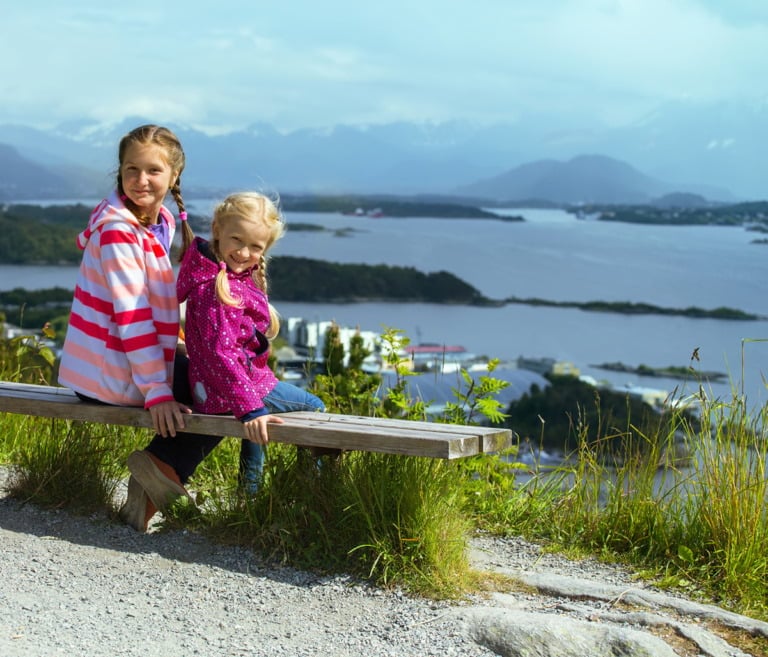
Anne. Anne, a timeless and classic name, is a variant of Anna, which itself is derived from the Hebrew name Hannah, meaning “grace” or “favour.” In the Nordic countries, Anne is often associated with simplicity, elegance, and a quiet strength.
It is a name that has been borne by queens and commoners alike, transcending social classes and maintaining its popularity over the centuries. In Denmark, Norway, and Sweden, Anne is a name that is often part of double names, paired with other traditional names to form unique combinations.
Astrid. Astrid, a name that resonates with the storied past of Scandinavia, is derived from the Old Norse elements “ás,” meaning god, and “fríðr,” meaning beautiful or beloved.
In Norway, where the name is particularly popular, it is often pronounced with a strong emphasis on the first syllable and a gentle, almost whispered ‘d' at the end, giving it a distinctive Nordic flair.
Astrid's popularity is a nod to the region's Viking heritage, where names were chosen for their meanings and the qualities they were believed to bestow upon the bearer.
Clara. A name that exudes clarity and brightness, Clara derives from the Latin word “clarus,” meaning “clear,” “bright,” or “famous.” In Denmark, where it has recently seen a surge in popularity, Clara is a name that captures a timeless beauty and grace.
The legacy of the name is enriched by famous figures such as silent film star Clara Schønfeld (1856-1939), who left her mark on Danish culture. The name's popularity is not just confined to Denmark. It has found favour across Europe for its melodic sound and the sense of elegance it conveys.
Emilie. This Germanic version of the name Emily has gained a firm foothold in modern Nordic naming traditions. It's a name that conveys a sense of elegance and sophistication, perhaps due to its association with the Latin word “aemulus,” meaning “rival” or “eager.”
In Norway, Emilie has recently climbed the ranks to become one of the top ten names for girls, reflecting a broader European trend that favours timeless names with a modern twist.
Freja/Freya/Freyja. Freja, also spelled Freya or Freyja, is a name deeply rooted in Scandinavian mythology, belonging to the goddess of love, beauty, fertility, and fine material possessions in Norse mythology. The name itself is derived from the Old Norse word for “lady” or “noblewoman.”
Its mythological background lends it a sense of enchantment and allure, making it a popular choice for parents who are drawn to the Norse legends. Freja is a name that embodies femininity and strength, reflecting the multifaceted nature of the Norse goddess it represents.
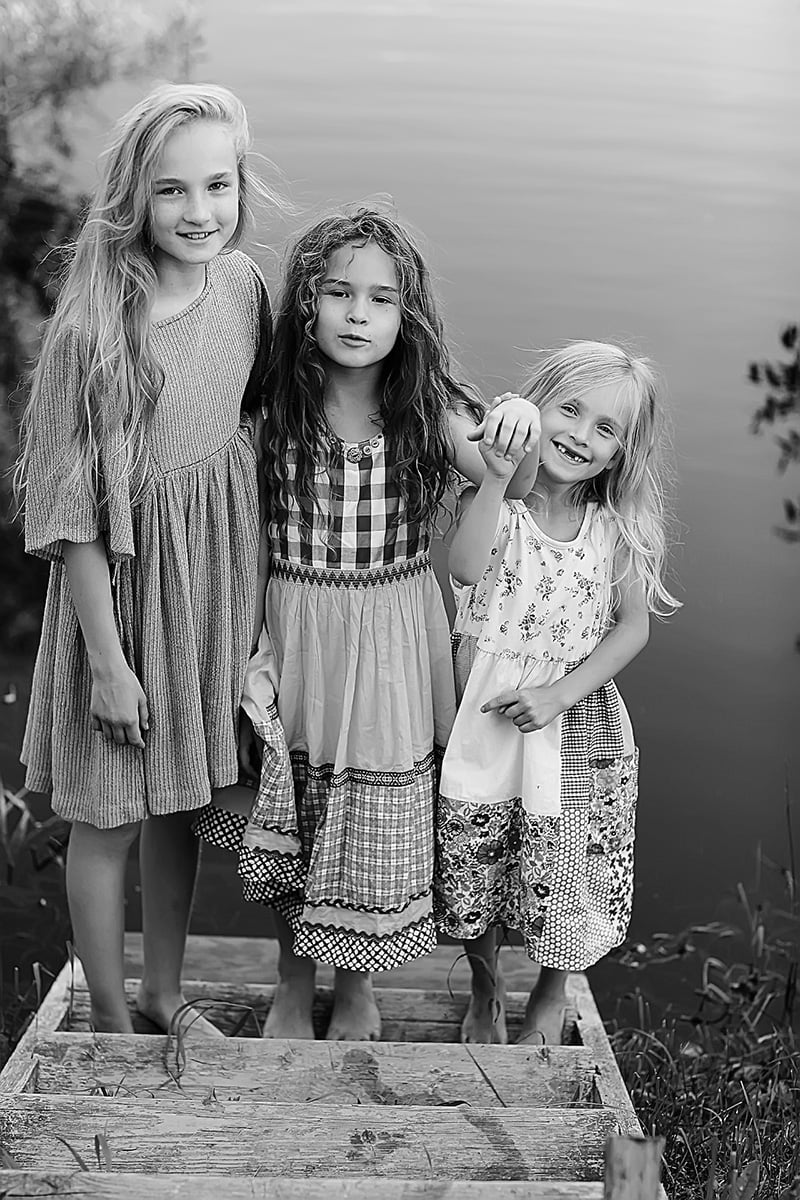
Inger. Not to be confused with the male name Inge! Rooted in Norse mythology and derived from the name of the goddess Freyja's attendant Ingibjörg, Inger is a name that carries with it the weight of history.
Common in Norway, it has a distinctly Scandinavian sound, with a crispness and a strength that reflect the region's rugged landscapes and resilient spirit.
Kari. Short for Karina or a name on its own, Kari is in use across the region but especially in Norway. In Sweden, the name Karin is more common. Curiously, Kari is a male name in Finland and Iceland. The Norwegian male equivalent to the Icelandic Kári is Kåre.
Linnea. A name as delicate and charming as the small twinflower for which it is named, Linnes holds a special place in the hearts of Scandinavians, especially Swedes.
Named after the Swedish botanist Carl Linnaeus, who formalized the modern system of naming organisms, Linnea is a testament to the Nordic love of nature and science.
In Sweden, where the twinflower is a national symbol, Linnea is a name that evokes images of serene forests and meadows, a connection to the natural world that is deeply embedded in Scandinavian identity.
Maja. Together with its alternate spellings Maia and Maya, Maja is a name that has charmed its way into the hearts of Norwegian parents, becoming one of the most popular names for newborn girls.
The name has a diverse heritage, with roots in Greek mythology as the mother of Hermes and in Roman tradition as the goddess of spring and fertility.
Olivia. This name that has enjoyed widespread popularity across the globe in recent years is just as beloved in Scandinavia. Its origins can be traced back to Shakespeare's “Twelfth Night,” where it was used for a character of high birth and grace.
The name Olivia conjures images of the olive tree, symbolizing peace and dignity. In Norway, where it is one of the most common names for newborn girls, Olivia represents a blend of international trendiness and local charm. Its popularity in Sweden and the UK further underscores its universal appeal.

Sofia/Sophia. The name Sofia can be traced back to the 4th century. Yet its popularity in the west began in the 1990s and it is now one of the most popular names in many countries. Sofia is also a popular name in Finland. Sofie/Sophie is considered a variant generally, but as a separate name in many Scandinavian countries.
Other popular Nordic names
Elea, Sofia and Amelia are the most popular names for Finnish newborn girls. In Iceland, it's Guðrún, Anna and Kristin that top the charts. Leo, Elias and Eino are the most popular names for Finnish newborn boys. In Iceland, it's Jón, Sigurður and Guðmundur that top the list.
Some other curious names in the region include:
Elsa. Lost to time for many years, the name Elsa is now known around the world thanks to the hit Disney movie Frozen. While it's still not a popular name in Scandinavia, it's no longer unusual.
Hedvig. It's believed that Harry Potter is responsible for the rise in popularity of Hedvig in Norway. It is of course the name of Harry's owl! “Many of those who read about Harry Potter's magical world as a child or youth are now adults. It is not known for sure, but maybe some have been inspired by Harry's wise owl when they themselves have had children,” said SSB researcher Jørgen Ouren.
Nora. The Norwegian TV show Skam introduced the historic name Nora to a modern audience in Norway and beyond.
Despite having finished several years ago, the show's influence continues, with 416 Norwegian newborns named Nora in 2020! Ouren said that Nora is a short form of Eleonore, which appeared in Ibsen's play A Doll’s House. The play premiered in 1879.
Odin. The all-father is a well-known Norse God, but his association with war and death may be the reason his name isn't as popular today as you may think. There are still plenty of Odin's around though!
Pet names in Scandinavia
Choosing the perfect name for a pet is a delightful task that often reflects not just personal preferences but also cultural trends and the natural environment. It's also an interesting task because popular pet names are rarely the same as popular human names.
In Scandinavia, where the deep connection with nature is ever-present, pet names often draw inspiration from the landscape, mythology, and characteristics of the animals themselves. Popular dog names in Norway include Bella, Leo, Luna and Mira.
What are your favourite Scandinavian names? Have you chosen one for your newborn, a pet, or a fictional character that you've created? Let us know in the comments below.






Could you please tell me what grandparents are called in Scandinavian? Many thanks, Karen…
In Denmark, you would call them the mother of your father (Morfar- moah fahh), father of your father(Farfar- fahh fahh), mother of your mother (Mormor- moah moah), and father of your mother (fahh moah).
Father of your mother is Farmor (fah-moah).
Yes, you are right 😊
I think the father of your mother is morfar. Farmor is the mother of your father.
In Norway grandparents are called ‘besteforeldre’ and the parents are called ‘far’ for father and ‘mor’ for mother, which means that grandfather is called ‘bestefar’ and grandmother is called ‘bestemor’.
To be a little bit cheeky with my reply, I like my Norwegian middle name ‘Mette’. I do like the name Marit as well.
My grandparents’ names were Hans Anderson & Berit Christiansen. I was born an Anderson then adopted by a Monsen. My birth father was an Opsal. So now I’m Norval Monsen and named my daughter Berit. Always thought that was a lonely name. Expect to visit Norway this summer.
We called are son Erik.It sounded good with our last name Ahlstrom. My mother and grandmother were Norwegian.
One Basset Hound named Bergen and another to be named Isben